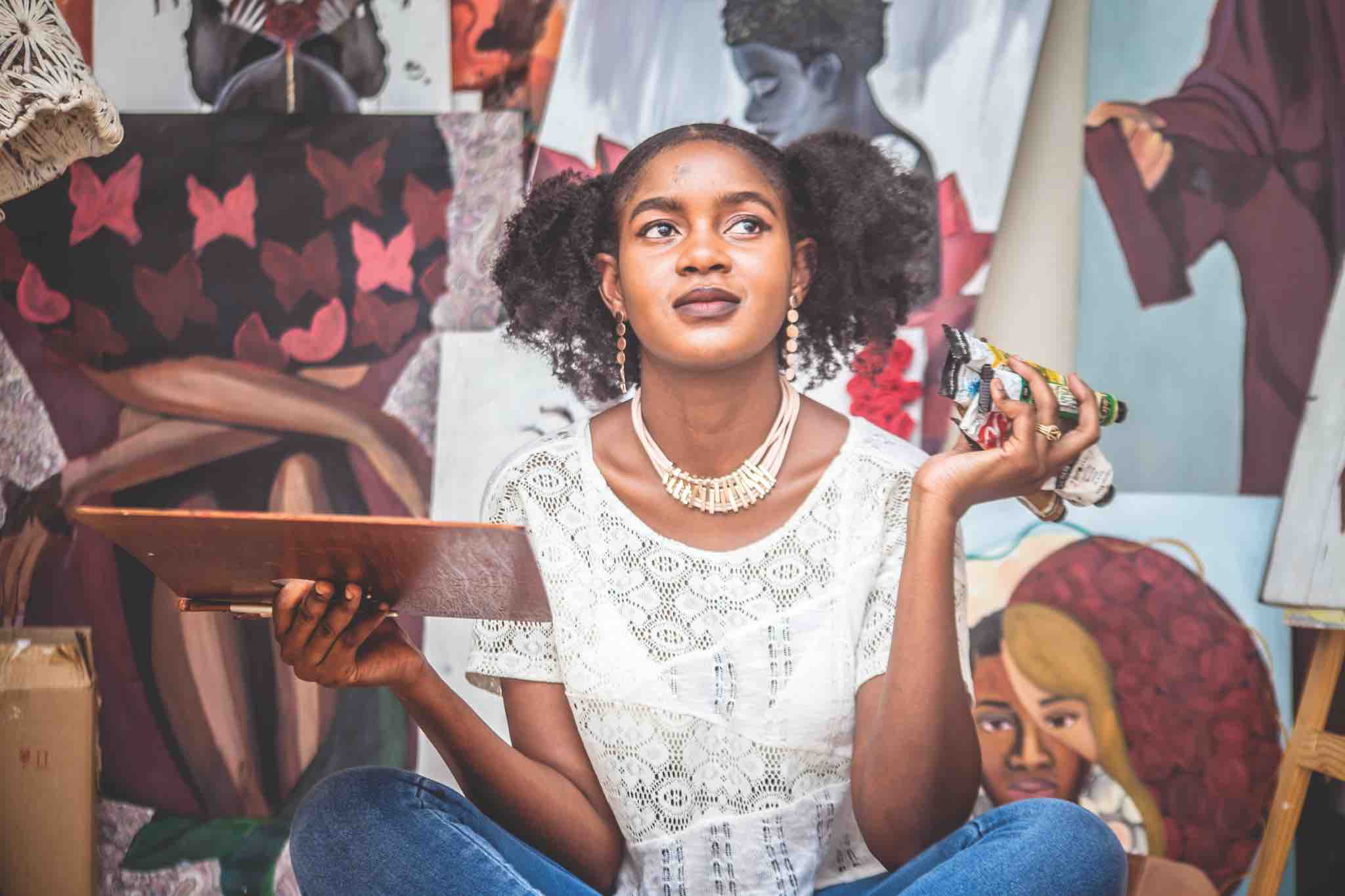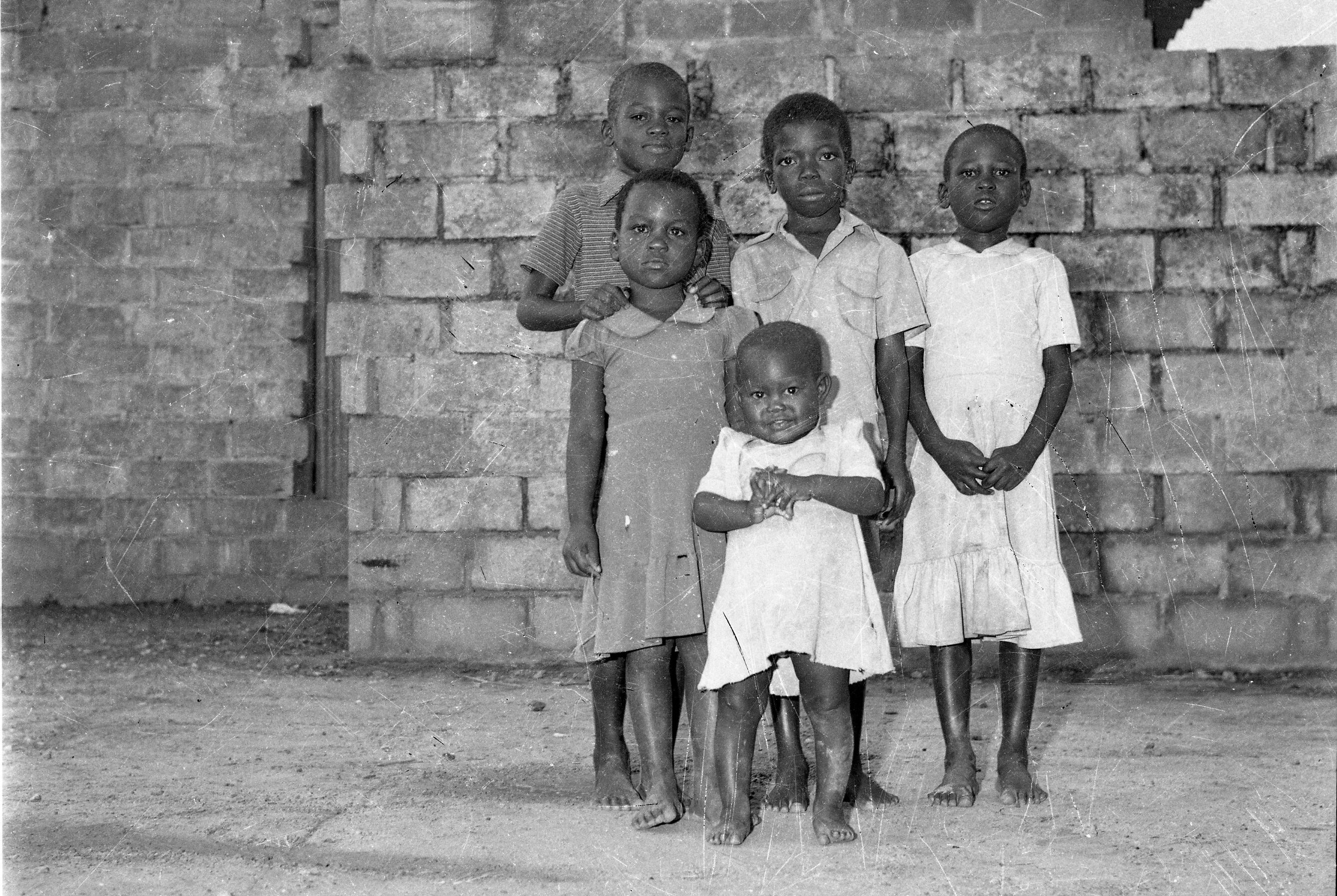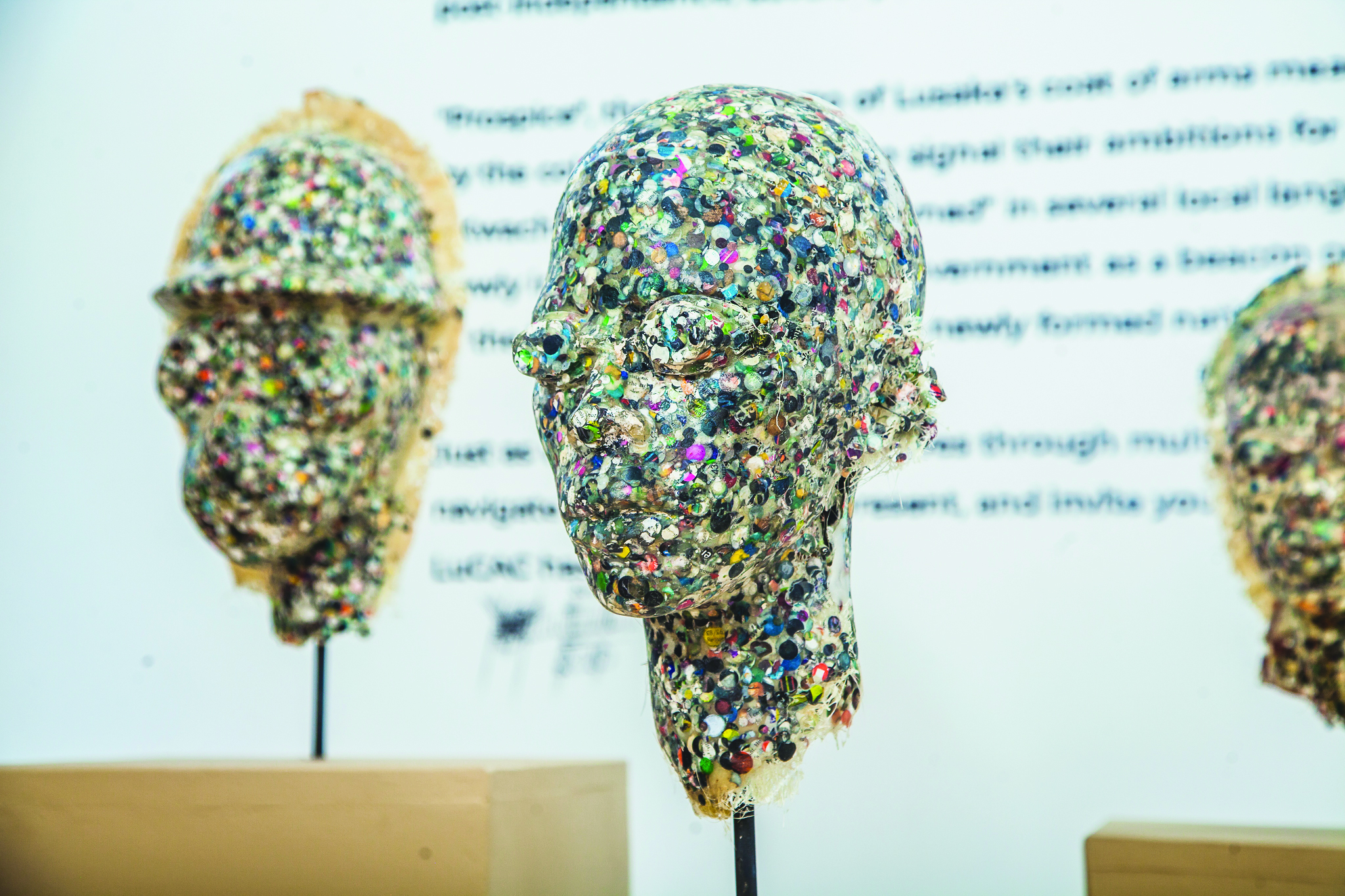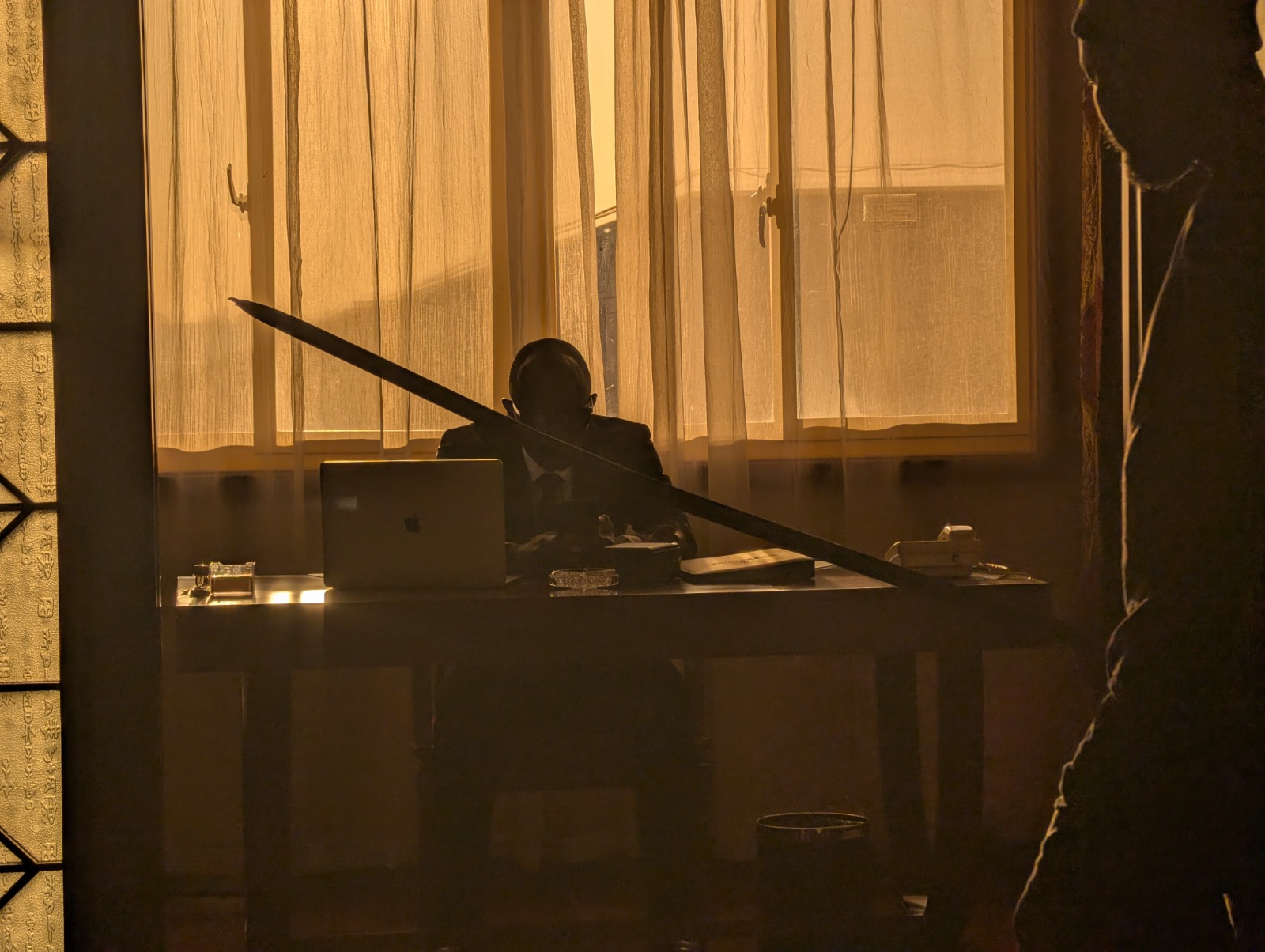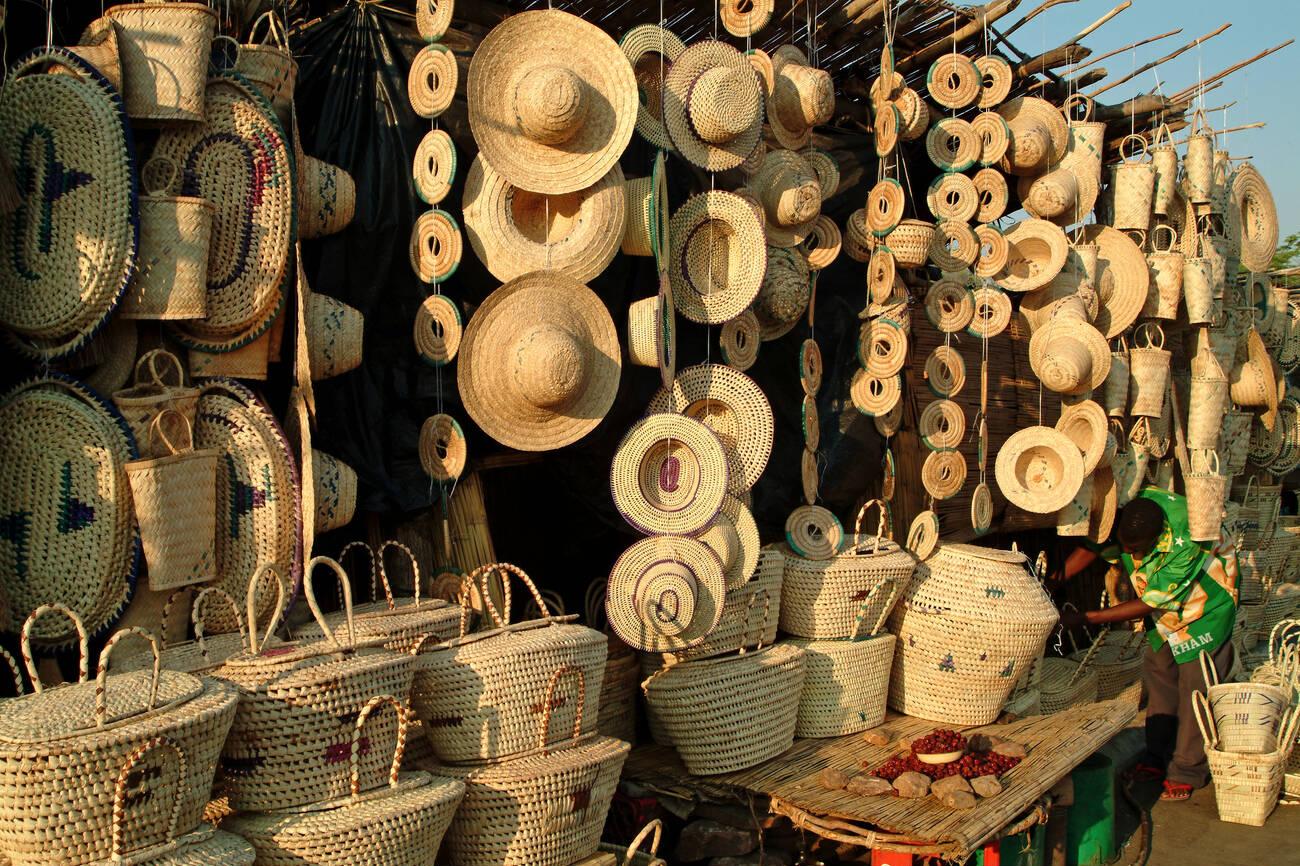USING SURREALISM AS A VOICE FOR ACTIVISM
Nukwase Tembo has a story most creatives can relate to and when I sat down to meet her she distinctly described her journey. “I’ve been an artist ever since I can remember. My mum tells me I started when I was two and it has been my second nature since then. Like with most things my art suffered as I got older and I pursued my studies in Social Work. After that period of time I got back into drawing and I thought I could study architecture and still tap into my creativity that way. I resisted becoming an artist until one day veteran artist Jeff Sitali saw my sketchbook and told me not to waste my time with architecture.
He introduced me to William Miko, one of Zambia’s top artists, and that’s how I joined the Visual Arts Centre and started taking my art seriously.”

Nukwase began by making a living as an artist by doing commissioned portraits. “That’s the kind of work that feeds me. I started out with portraits and it’s something I have done for a very long time,” she says. Alongside this she has done a series of art projects exploring different themes, which is how she became popularly known for her style in Surrealism. As she has grown as an artist Nukwase has also set up her own art studio. She shares, “I used to work from my friend’s home and it’s such a relief to have my own space. It’s freedom! Art is my full-time job; I work every day and treat it like an actual job. I go to work in the morning like anyone else going into the office and if I have an overload of work I do find myself working overnight.” In addition to creating art Nukwase also teaches art to children on a part time basis.
In October of 2018 Nukwase participated in Inktober, a challenge where artists from all over the world do one ink drawing a day for the entire month. This was the first time she publicly paired her art with poetry. She explains, “before I started painting I used to do poetry and I have a bunch of poems I have kept somewhere. When I got into painting I thought to incorporate the two. My poetry is surreal and it can be paired with my surreal art. Inktober was the perfect time for me to start those sketches I intend to reproduce into paintings.”

Nukwase was also selected to participate in the prestigious Barclays L’atelier Art Competition where she made it to the top 100 and had her work exhibited at boutique hotel, Latitude 15. The aim of the competition is to create a platform for African artists and elevate them not just on the continent but also on a global scale.
She also created a new exhibition that she is excited about. She explains the project by saying, “It explores and challenges toxic societal norms that infringe on the rights and values of black women in the context of a post-colonial era.” The focus of her work is in trying to normalise being a black woman, this is done by trying to establish what it really means to be a black woman without disregarding the complexities it involves. The second aspect focuses on objectification of women’s bodies, socially and culturally. All of this work will lead to her first ever solo exhibition this year in 2019.

Nukwase does not shy away from difficult subject matters and views her art as often political or a form of activism, tackling a very weighted subject matter. She shares, “I was raised by my mother and I’ve had a strong female figure to look up to. I have also had my own experiences as a black woman living in the world and moving through it. I am currently working on an art project called The Hundred, themed around natural hairstyles. I’ve been working on it for a few months now and that’s the other thing that people should expect from me aside from my first solo exhibition.” A force to be reckoned with, Nukwase Tembo is using Surrealism to start conversations and bring to light the issues facing Zambian women as well as to elevate the image and perception of black women by celebrating them.
